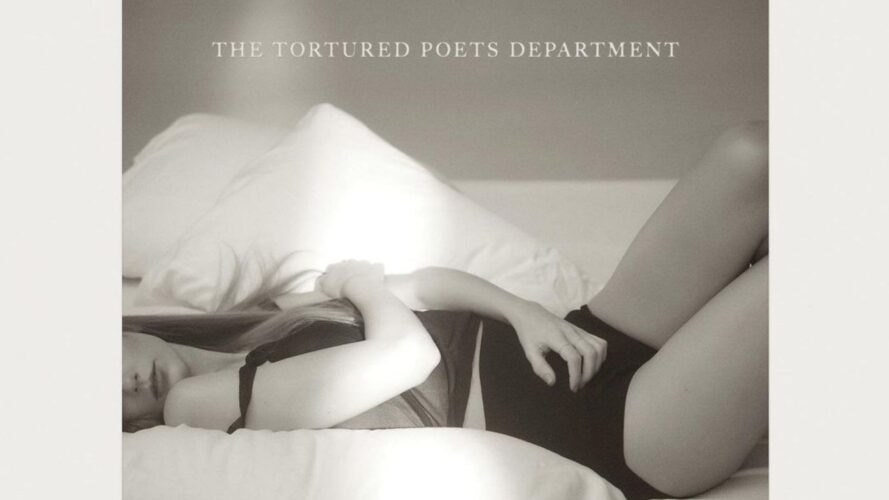Paste magazine’s scathing review of the newest album from pop sensation Taylor Swift was published without a byline on Friday after the anonymous writer cited “threats of violence” from the singer’s notoriously rabid fanbase. According to the reviewer, Swift’s latest musical offering, entitled “The Tortured Poets Department,” was at best “terminally cringe” and represented a step backwards for the world-famous singer—an assessment die-hard Swifties have vehemently rejected.
“Swift is the most famous musician—and, arguably, person—on Earth, but on her latest album she can’t help but infantilize the very people who buy into her music and drive her successes upwards in the first place,” the Paste review of Swift’s 11th studio album begins. “Sylvia Plath did not stick her head in an oven for this!”
The lengthy review, titled ” Taylor Swift Strikes Out Looking on ‘The Tortured Poets Department,’” is attributed only to “Paste Staff” rather than a specific author. An editor’s note accompanying the write-up on social media explains the decision to conceal the music critic’s identity.
“There is no byline on this review due to how, in 2019 when Paste reviewed ‘Lover,’ the writer was sent threats of violence from readers who disagreed with the work,” the magazine wrote. “We care more about the safety of our staff than a name attached to an article.”
Editor’s Note: There is no byline on this review due to how, in 2019 when Paste reviewed ‘Lover,’ the writer was sent threats of violence from readers who disagreed with the work. We care more about the safety of our staff than a name attached to an article.
— Paste Magazine (@PasteMagazine) April 19, 2024
Learn the benefits of becoming a Valuetainment Member and subscribe today!
Given the online reaction to the publication’s brutal criticism of “The Tortured Poets Department,” (“TTPD” for short,) this precaution may have been a wise one.
Straight away, the reviewer takes issue with the title of the album itself, describing it as “cringeworthy,” “bad,” and “catnip for your disinterest.” Given Swift’s status as a billionaire, world-famous, award-winning artist, her efforts to portray herself as a “tortured” artist are labeled pretentious and inauthentic. As the author states:
This is not to say that Swift being the most famous person in the world makes her immune to having multi-dimensional feelings of heartbreak, mental illness or what-have-you. But, she has made the choice—as a 34-year-old adult—to take those complex, universal familiars and monetize them into a wardrobe she can wear for whatever portion of her Eras Tour setlist she opts to dedicate to the material. Torture is fashion to Taylor Swift, and she wears her milieu dully.
From there, the review turns its critical gaze to Swift’s lyricism, described as “her worst to-date,” in a song-by-song breakdown that holds nothing back.
TTPD’s opening track, “Fortnight” featuring rapper Post Malone, is labeled “a heady vat of pop nothingness” that “chokes on the vomit of its own opaqueness.” The album’s titular song contains lyrics described as “irredeemable [and] relentlessly cringe.” “Florida” is excoriated for having “the worst chorus of 2024” and “Who’s Afraid of Little Old Me?” fails to resonate given how “unlivable these songs really are.”
As the nameless writer states, “The Tortured Poets Department reeks of ‘because I can,’ not ‘because I should.’”
The review also shows no mercy to the devoted “Swifties” who will inevitably hang on every word of the album (and apparently send death threats to anyone who criticizes it).
Swift makes Zoomer jargon her bag…and it feels like she’s cosplaying because the Fountain of Youth was out of order.
Now that Swift is in her 30s, it sounds like she is infantilizing her own audience more than ever before—that singing to them at a level that could force them to reckon with something more akin with adulthood would be some kind of kink in the coil or her consumeristic threshold, that writing lyrics that sound like they were penned by a 30-year-old would, somehow, deter the interests of the billions of people who adore her.
…
The issue is that Swift and her fans have grown together numerically but, substance-wise, there has been no aging up.
Related: Pentagon “Shakes Off” Rumors That Taylor Swift is a Government Psyop
Despite this overwhelmingly negative response to TTPD, few other critics shared the writer’s assessment (or at least dared to admit it publicly). The Metacritic score for the album currently stands at 77/100, and the Paste review is the only negative one so far. Rolling Stone and The Independent both gave Swift a perfect 100, while The New York Times gave it a mixed 60 and suggested that Swift could “use an editor.”
Audience feedback for the album has been largely positive as well, with online responses from Swifties predicably echoing with nothing but praise for the artist’s musical stylings. Among wider audiences, however, reactions have been mixed—and for those who voice their own negative opinions, the threat of Swifty-induced violence remains a real one.
As Paste concludes:
We are now left at a crossroads. Women can’t critique Swift because they’ll run the risk of being labeled a “gender traitor” for doing so. Men can’t critique her because they’ll be touted as “sexist.”
…
But, you cannot write about someone being a “tattooed golden retriever” and get away with it and still retain your title as the best songwriter of your generation. You just cannot.
Sisyphus should be glad he never got the boulder to the top of the mountain—because Taylor Swift is showing us that such immortality and success ain’t all it’s cracked up to be.
Connor Walcott is a staff writer for Valuetainment.com. Follow Connor on X and look for him on VT’s “The Unusual Suspects.”




















Add comment